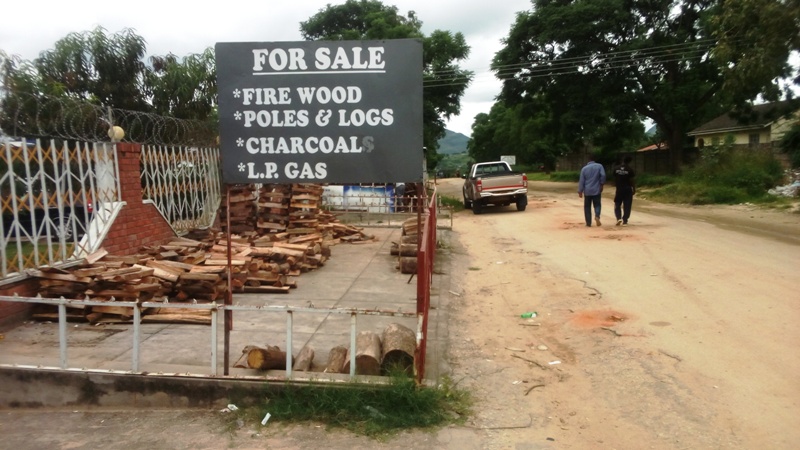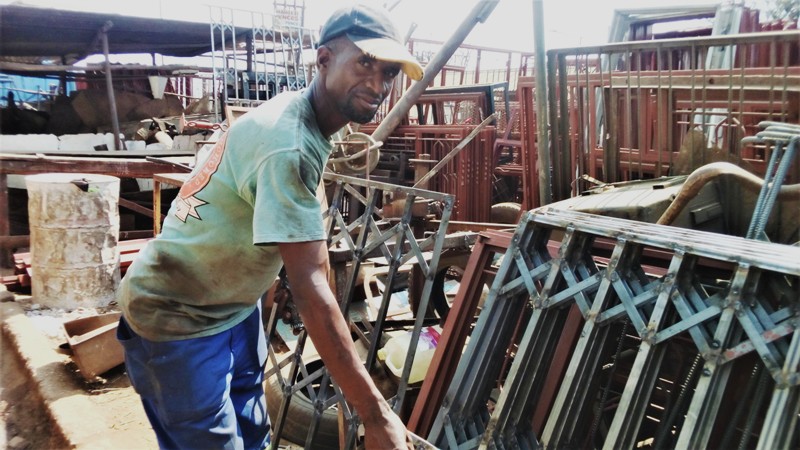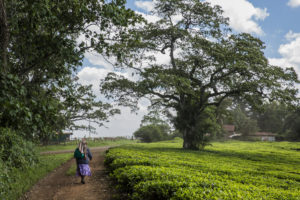Clouds Over Africa’s Energy Future
Zimbabwe’s hydropower collapse is a harbinger of crises to come. Image by OECD
Image by OECD
MUTARE, ZIMBABWE — In November of last year, Zimbabweans woke up to the shocking news that the country’s major hydropower station at Kariba Dam — which provides more than 70% of Zimbabwe’s energy needs — was shutting down due to low water levels. Hopes that the crisis would end soon were dashed by drought. Since December, daily electricity generation at Kariba has remained below 400 megawatts, down from a capacity of 1,050 megawatts.
The country is not alone in struggling to maintain hydropower operations. Climate change related droughts are pummelling countries across Africa, leading scientists to warn that hydro is no longer a reliable source of energy in many parts of the continent. After crunching data from more than 24,000 hydropower stations across the globe, researchers from the International Institute for Applied Systems Analysis (IIASA) in Austria and Wageningen University in the Netherlands have concluded that climate change-related impacts will affect electricity production at more than 60% of hydropower plants worldwide.
The human consequences and downstream negative environment, public health and economic impacts of the electricity crisis are already visible as Zimbabweans struggle with long and regular electricity outages. Millions of households and businesses across the country are enduring as much as 20 hours of electricity cuts a day. The crisis has caused businesses to close, forced clinics and hospitals to use backup generators and sent everyday people in search of unclean sources of energy for cooking fuel.
Researchers from the International Institute for Applied Systems Analysis (IIASA) in Austria and Wageningen University in the Netherlands have concluded that climate change-related impacts will affect electricity production at more than 60% of hydropower plants worldwide.
Women and children have been hit hardest. In poor urban neighborhoods across the country, women can be seen carrying heavy loads of wood into the city as they turn to firewood for cooking fuel. “The situation is now dire,” says Lillian Sigauke, a mother of two in Chikanga, a high density suburb in Mutare, an eastern border city. “I fetch the firewood for cooking from nearby mountains. We hope the government is doing something to improve the situation.”
Like millions of hard-up women in Zimbabwe, Sigauke survives by selling an assortment of small wares on the streets of downtown Mutare. With her meager earnings, she cannot afford alternative sources of cooking fuel. “I can’t afford to buy a gas cookstove. But I have young children to feed,” she says.

The result is a spike in household air pollution driven by solid-fuel indoor cookstoves, which since 2019 has accounted for more 700,000 fatalities in Africa, according to researchers with Boston College and the UN Environment Programme.
* * *
The crisis has accelerated the Zimbabwe government’s search for alternative sources of energy, including solar, gas and wind energy. At the same time, the country has invested $1.5 billion into the expansion of a coal fired Hwange Thermal Power Station, a project supported by Sinohydro, a Chinese company. After some delays due to the COVID-19 pandemic, one of the plant’s two new power generating units was finally commissioned in March this year. But even with the generators’ expected addition of 600 megawatts later this year, the country’s electricity supply is expected to remain inadequate.
The government has issued numerous licences to independent power producers, but these power producers are still too small to feed any meaningful electricity into the national grid. Investments in alternative energy sources, meanwhile, are hampered by lack of financial resources.
Tawanda Chitiyo, the director of Tawanda Energy (Pvt) Limited — an energy start-up — says Zimbabwe’s state energy company is perennially in the red, highly indebted and technically insolvent. In short, it is not competent to address the energy crisis on its own.
Eddie Cross, a Zimbabwe-based economist and energy expert, says the country has taken energy for granted in the past years. “Today we are suddenly learning just what that means when energy in its various forms becomes a scarce commodity,” says Cross, a former adviser to the Reserve Bank of Zimbabwe.

Zimbabwe and other countries in the region must contend with a global reluctance to fund new coal power stations.
The region has an abundance of coal supplies and one option is to look into the possibility of investigating the development of clean technologies, which will enable the region to use its coal resources to produce electrical energy without contributing significantly to global warming.
“This is a tall order but in view of the magnitude of the energy crisis facing developing countries there may not be any alternative,” Cross says.
A recent study by Sebastian Sterl, an energy meteorology professor at Vrije Universiteit Brussel in Belgium, looked at the possibility of integrating renewable electricity sources into power grids across Africa.
“The African continent has a unique opportunity to plan its future electricity systems from the outset with a high variable renewable electricity penetration as one of the targets,” Sterl concluded. “Many African countries are practically ‘greenfields’ for variable renewable electricity deployment, where even comparatively small capacity additions of variable renewable electricity could have important ramifications for power system operation,” reads part of the research paper.
What Zimbabwe does not need, says Cross, is for wealthy countries to dump their old energy plants and dirty technologies on the country.
Another research paper authored by a team at the Institute of Solar Energy in Shanghai says Zimbabwe has great potential for high solar photovoltaic production. And since the grid is failing to meet the nation’s energy demands, the battery energy storage system (BESS) could also help stabilize the grid, the team said.
What Zimbabwe does not need, says Cross, is for wealthy countries to dump their old energy plants and dirty technologies on the country. “Zimbabwe needs to be able to afford the best [energy technologies],” he says. “And for that to happen, we need financial help.”
This sentiment is increasingly expressed by African leaders in international fora related to energy and development. At Energy Day during COP27 in Egypt last year, several African ministers called for more help financing critical energy infrastructure on the continent. They were echoed in their call by the UN Secretary General’s Special Representative for Sustainable Energy, Damilola Ogunbiyi.
“Over the last two decades, less than 2% of global investment in renewables has gone to Africa, which makes it impossible for countries to achieve their net-zero targets,” said Ogunbiyi. “Much more is needed from the international community.”
Your support matters…Independent journalism is under threat and overshadowed by heavily funded mainstream media.
You can help level the playing field. Become a member.
Your tax-deductible contribution keeps us digging beneath the headlines to give you thought-provoking, investigative reporting and analysis that unearths what's really happening- without compromise.
Give today to support our courageous, independent journalists.







You need to be a supporter to comment.
There are currently no responses to this article.
Be the first to respond.